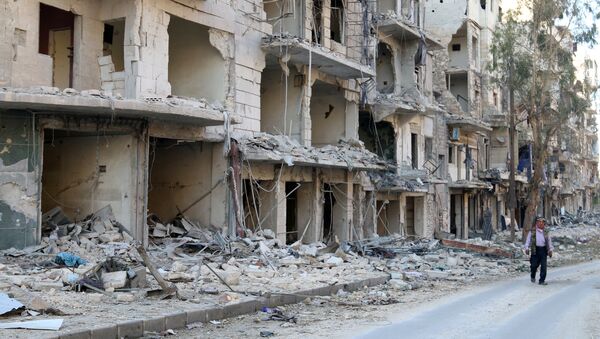Earlier, the Russian military found traces of chlorine and white phosphorus in the 1070 neighborhood of Aleppo, Syria's second largest city partially controlled by radical organizations, including al-Nusra Front.
Militants in Syria and neighboring Iraq have long been suspected of producing chemical weapons using simple and readily available toxic substances.
Unlike these complex substances, chlorine is the simplest kind of a toxic agent. This is why chlorine attacks are a "trademark" of the militants.
Retired Vice-Admiral Tengiz Borisov told the media outlet that the militants could have recovered chlorine from water treatment plants. He also suggested that armed rebel groups could have gained access to chemical weapons stockpiles of the Syrian Arab Army, including sulfur mustard and sarin, which had been produced prior to Damascus joining the UN Chemical Weapons Convention.
"Russia can hand over all the necessary evidence to the Organization for the Prohibition of Chemical Weapons (OPCW). However, it is highly unlikely that experts will be able to determine which group has used chemical weapons [in Aleppo]. There are hundreds of armed militias in Syria. They exchange weapons and at the same time fight against each other. It is nearly impossible to determine who produced weapons uncovered by the Russian Radiological, Chemical and Biological Defense (RChBD) troops and who they were transferred to, as well as other details," he said.
Earlier this week, Russian Defense Ministry spokesman Maj. Gen. Igor Konashenkov said that RChBD experts had found unexploded ammunition with chemical agents and took soil samples in the area where attacks had taken place. They conducted an express analysis, with a detailed probe expected to take place at an RChBD laboratory, which is accredited by the OPCW.
Borisov further said that chemical weapons found in Aleppo could have been imported. Military expert Igor Nikulin echoed these sentiments particularly with regard to white phosphorus, saying that "intelligence services of our so-called partners are most likely well aware" of these deliveries.





